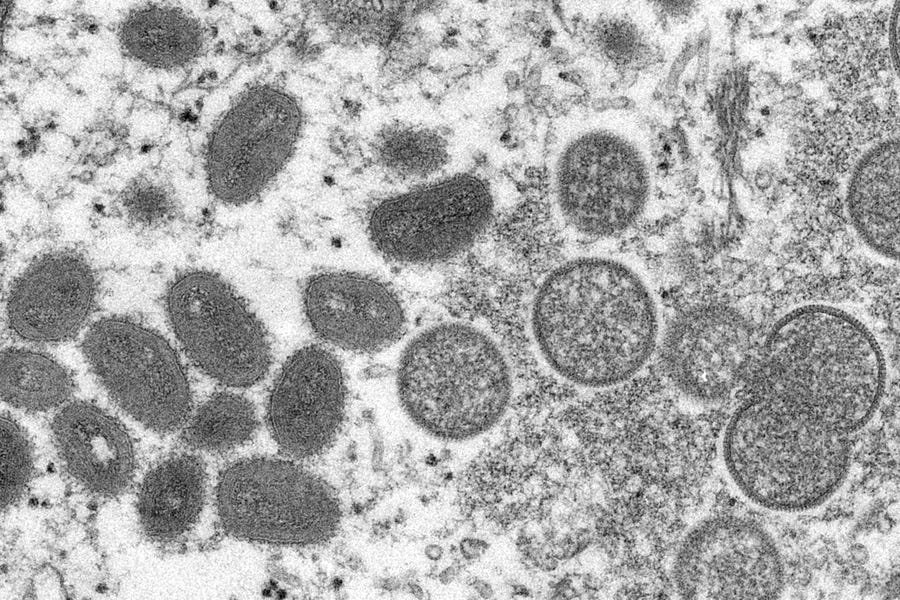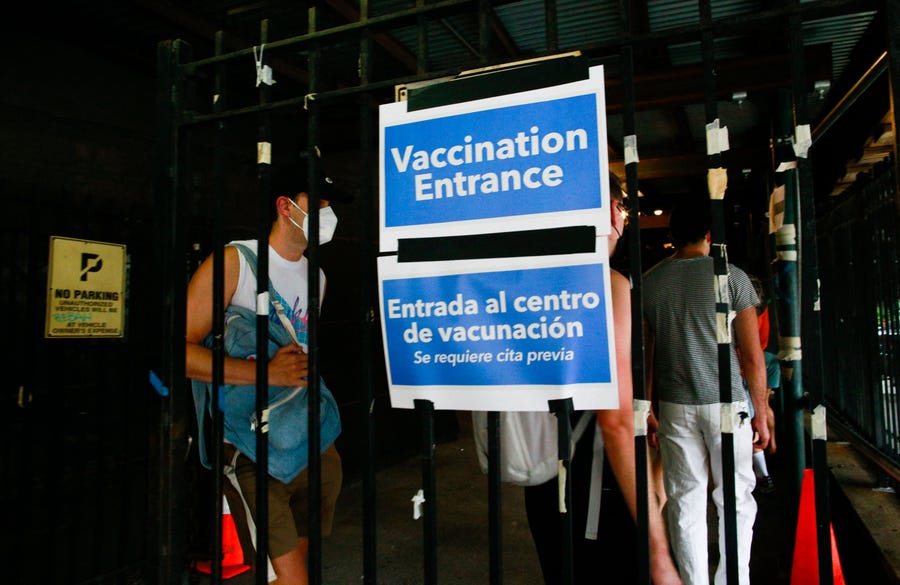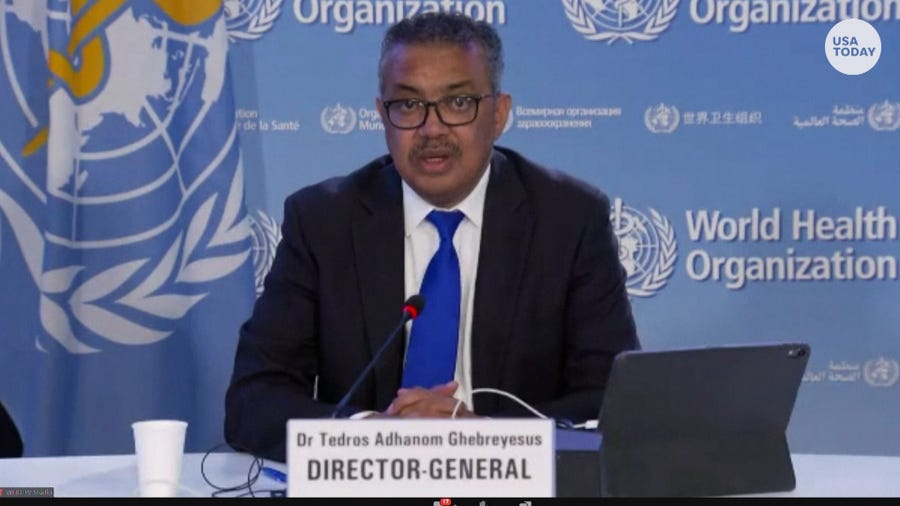 |
| |
| |
| |
| |
| |
| As monkeypox continues to spread across the globe and in America, experts are starting to warn that the country is not prepared to respond. |
| The Center for Disease Control and Prevention shows that we are past 4,600 cases as of Thursday and that just about every state is dealing with the virus. Last week, the World Health Organization declared monkeypox a global emergency. |
| USA TODAY Opinion has posted several columns on the topic that includes experts warning about what happens next and offering advice on how we need to respond. What can we learn from our response to HIV and COVID-19? Will monkeypox spread more widely across the country? |
| These columns addressed those questions as the virus started to take hold. |
Is the US prepared to handle the monkeypox threat? |
| Dr. Marc Siegel wrote a column in May as the virus was approaching 100 cases. He focused on COVID-19 testing lessons that can be applied now. |
| "What we can learn from COVID's PCR and rapid testing delays is the great importance of decentralized, widely available testing. Public health requires an accurate assessment of the number of cases, the ease of spread and the severity of illness before we can accurately identify and fight any infectious disease. |
| "We have a PCR test now to identify monkeypox; it needs to be made widely available without delay." |
We must avoid past mistakes to protect LGBTQ people |
| In early July, we posted a column from Zain Rizvi, a research director in the Access to Medicines Program at Public Citizen, and Gregg Gonsalves, an associate professor of epidemiology at the Yale School of Public Health. Their focus was on stopping the spread by protecting the LGBTQ community. |
 | | This 2003 electron microscope image made available by the Centers for Disease Control and Prevention shows mature, oval-shaped monkeypox virions, left, and spherical immature virions, right, obtained from a sample of human skin associated with the 2003 prairie dog outbreak. Monkeypox, a disease that rarely appears outside Africa, has been identified by European and American health authorities in recent days. (Cynthia S. Goldsmith, Russell Regner/CDC via AP) ORG XMIT: NY815 | | Cynthia S. Goldsmith, Russell Regner/CDC via AP | |
| "More than 7,200 cases of monkeypox have been reported this year in dozens of countries, including over 600 cases in the United States, largely but not exclusively in men who have sex with men. While it is not as contagious as COVID-19, monkeypox could easily gain a foothold in communities now suffering from the latest spread of the disease. |
| "If we do not contain this outbreak, the risk of the persistence of monkeypox among gay, bisexual and transgender people is likely. That is, it will dig its roots into these communities, making this a disease LGBTQ communities will have to live with for a long time." |
Treating HIV taught us about inclusive care |
| Dr. Siegel wrote a second column for us as monkeypox cases in America went past 2,000. This column examined the response to HIV and how different the monkeypox response needs to be. |
| "Back in 1985, as a reliable blood test for HIV was first becoming available, I plunged headlong into medical residency at Bellevue Hospital in New York. Half of my patients had AIDS, and the challenge quickly became managing opportunistic infections with multi-organ involvement. |
 | | People wait in line to recieve the Monkeypox vaccine before the opening of a new mass vaccination site at the Bushwick Education Campus in Brooklyn on July 17, 2022, in New York City. (Photo by Kena Betancur / AFP) (Photo by KENA BETANCUR/AFP via Getty Images) ORIG FILE ID: AFP_32EP3M3.jpg | | KENA BETANCUR, AFP via Getty Images | |
| "Stigmatization of men who have sex with men and intravenous drug users was more of a political than medical issue. It didn't reach into the hospital trenches, as we learned to treat diseases and show compassion for the patients who have them. The diagnostic test for HIV helped us enormously in those days, though it took another decade before we had truly effective treatments – and we still don't have a vaccine. |
| "Now we are facing another growing outbreak largely impacting men who have sex with men. This time we have tests, treatments and vaccines, though not enough of them." |
Monkeypox now a 'global emergency.' US needs to step up. |
| Dr. Jerome Adams, a former U.S. surgeon general, spent time with USA TODAY Opinion to talk about monkeypox being named a global emergency by the WHO and how America has responded. |
| As the country neared 3,000 cases, we asked Adams whether the United States has the capacity to vaccinate, treat and test. |
 | | WHO declares monkeypox a global emergency | | WHO | |
| "Right now we do not have the capacity to properly treat and vaccinate people for monkeypox. And, it's an important distinction here for monkeypox: You can vaccinate people who are at risk before they're exposed, but you can also use vaccines as post-exposure prophylaxis – which is why it's important that people who are at risk know that if you've been exposed and if you are early in the symptomatology, you can actually get vaccinated at that point, and that can prevent progression of the disease. But we don't have enough vaccines available in this country." |
| |
| |
| |
| |




Comments
Post a Comment